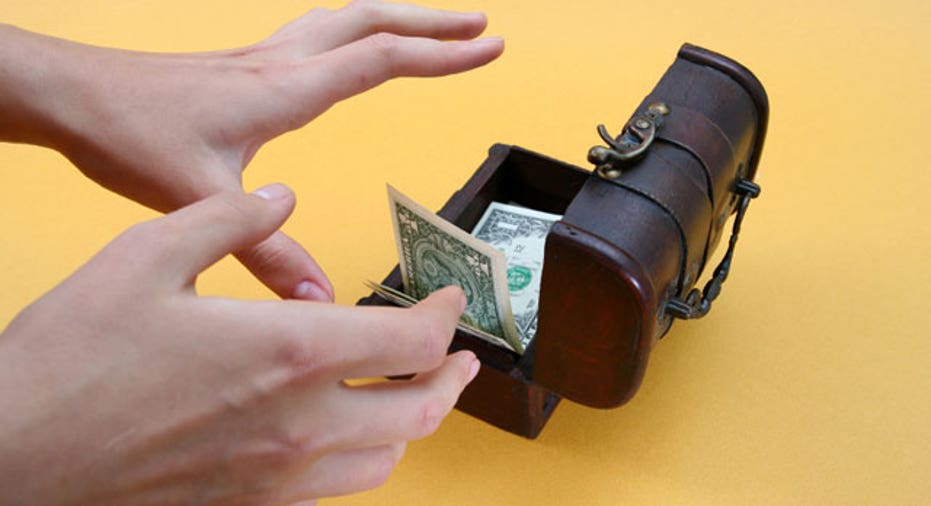Pros and Cons: Saving In an Escrow Account

Should you set up an escrow account for a new home or shoulder the responsibility of paying taxes and homeowners insurance on your own? The simple answer: It depends.
"There's always a different reason for different people," says Adriana Mollica, Realtor with Keller Williams Realty Westside in Los Angeles. "The reality is, not everybody's equal."
While Federal Housing Administration, or FHA, mortgages require an escrow account be established, homebuyers may have the choice in other instances of setting up an escrow account or paying taxes and insurance out of pocket if they put down at least 20% of the purchase price.
With an escrow account, the amount you owe in property taxes and homeowners insurance for the year is divided into 12 parts. Say your annual taxes are $3,000 and your insurance is $600. Your mortgage payment to your financial institution would include $300 each month to cover those costs.
Without an escrow account, you'd have to pay $3,600 out of pocket when your insurance and tax bills are due.
Here are some questions to consider if you're trying to determine whether to establish an escrow account.
Am I a Good Saver?
The first thing to ask yourself is whether you're a saver by nature. If not, you're better off having an escrow account, Mollica says. Being prepared to write a check for $3,000 to cover taxes and another for $600 to cover insurance is a daunting task.
If money burns a hole in your pocket, it may be tempting to use the money you set aside for taxes and insurance and take a pricey vacation instead.
But if you don't have the cash on hand when those bills come due, you might have to take a credit card cash advance. If you pay late, you'll be assessed a fee. "It's a whole lot cheaper to not have those mistakes," Mollica says.
Pat Hellman, Wells Fargo's senior vice president of mortgage servicing operations in Des Moines, Iowa, says escrow accounts also help homeowners with their budgeting as insurance and taxes fluctuate from year to year.
Wells Fargo has seen homeowners face property tax increases of up to 15% recently. If your property tax ends up being higher than anticipated, the additional payment will be stretched over 12 months rather than you having to pay it in one lump sum.
However, those who are self-employed or receive commissions -- thereby experiencing monthly income fluctuation -- have more flexibility if they pay for insurance and taxes directly, says Joe Chatham, president of Chatham Mortgage Partners Inc. in Westlake Village, Calif. They can set aside extra money in months when their earnings are strong.
Where Else can I put My Cash?
If you're good at saving money, Mollica says it doesn't make sense to make monthly payments for something you only need to pay once or twice a year. "It's free money for the banks," Mollica says.
If you don't like handing your money over to the bank each month and are wary of the vagaries of the stock market, then savings, money market accounts and certificates of deposit could be alternatives. Even if the rates are low today, the rates will go higher in the long term, Mollica says.
But Chatham says it's not worth it to invest money for the short term and handle taxes and insurance payments yourself. Putting $3,000 into the market might only earn you $300 in a year. But there's a big risk to bear, Chatham says. "You can make 10%, but you can also lose it," he says.
Will it Make a Difference With my Bank?
Setting up an escrow account with your lender could result in you being offered a lower interest rate on your loan, which can bring substantial savings over the long haul, Chatham says.
But homebuyers also need to bring money to the closing table to fund the escrow account. Depending on the month you close and the month the tax and insurance bills are due, it could add up to a hefty sum.
Whose Responsibility is It?
If you have an escrow account, it's the lender's responsibility to pay all your tax bills in a timely fashion. Hellman says in some places, such as Texas, customers may have to pay separate tax bills to the county, school district, and water and sewer districts rather than having them rolled together into one county tax bill.
The mortgage company must track down all the jurisdictions where your taxes must be paid. If the lender drops the ball and misses a payment, it's their responsibility to pay penalties, Hellman says.
While there are horror stories of lenders failing to make insurance and tax payments, Hellman says it rarely occurs.
But if you like the thought of controlling your own financial matters, it will fall on you entirely to make sure taxes and insurance are paid on time.
If you don't pay your insurance promptly, coverage could lapse, and that could result in your insurance company either charging you a higher amount or declining to renew your policy, Hellman says.
There also can be major problems if you forget to pay your taxes, says Chantay Bridges, a Realtor with Clear Choice Realty & Associates in Los Angeles. You could wind up with a tax lien on your home, and it will be impossible to sell your home until it's cleared up.
Not paying those items out of pocket means fewer payments you'll have to make and not having to worry they were received on time, Bridges says. Once you consider the pros and cons of each scenario, then you can decide what's right for you.



















